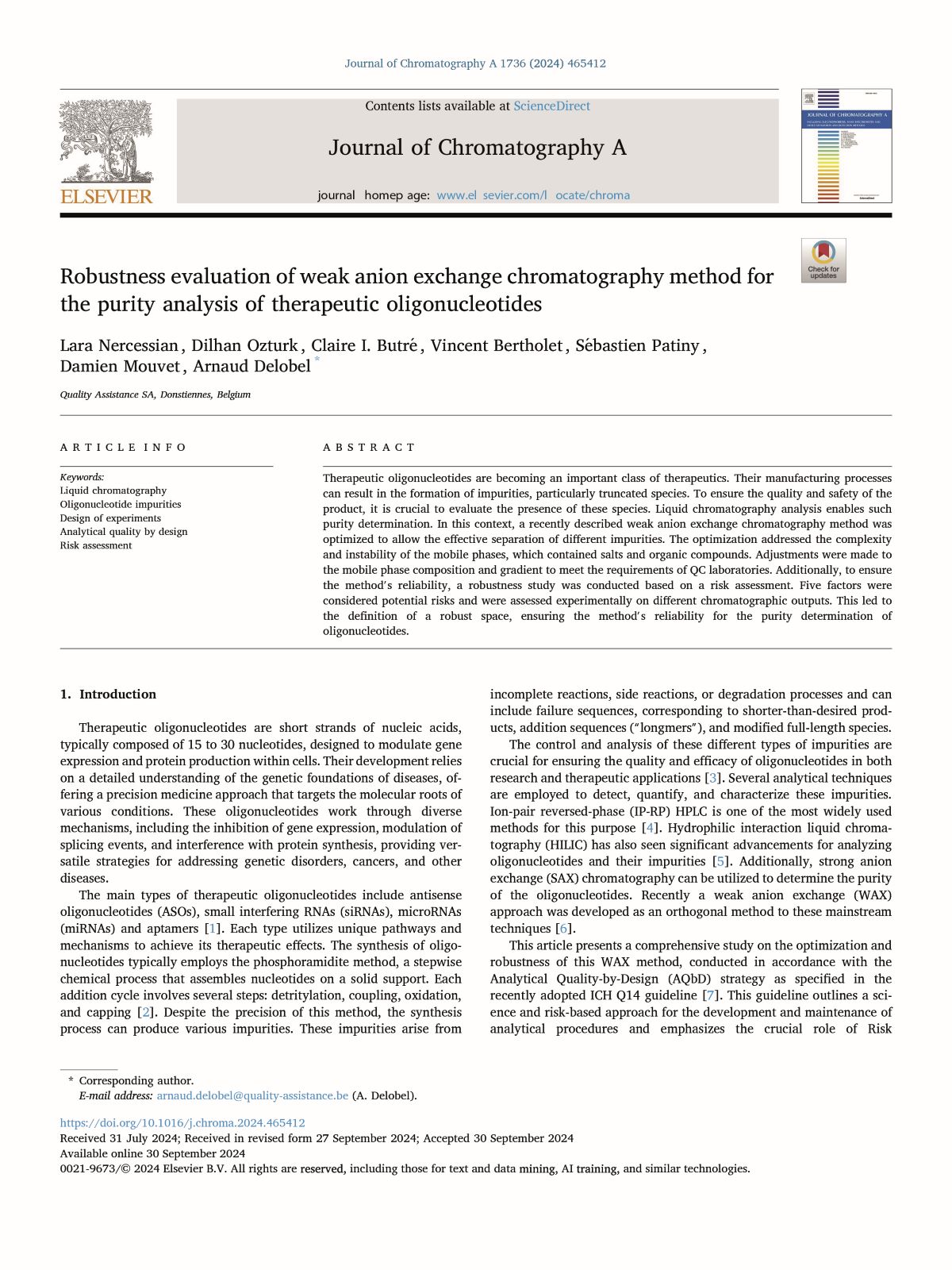Robustness evaluation of weak anion exchange chromatography method for the purity analysis of therapeutic oligonucleotides

Therapeutic oligonucleotides are becoming an important class of therapeutics. Their manufacturing processes can result in the formation of impurities, particularly truncated species. To ensure the quality and safety of the product, it is crucial to evaluate the presence of these species. Liquid chromatography analysis enables such purity determination.
In this context, a recently described weak anion exchange chromatography method was optimised to allow the effective separation of different impurities. The optimisation addressed the complexity and instability of the mobile phases, which contained salts and organic compounds. Adjustments were made to the mobile phase composition and gradient to meet the requirements of QC laboratories. Additionally, to ensure the method’s reliability, a robustness study was conducted based on a risk assessment. Five factors were considered potential risks and were assessed experimentally on different chromatographic outputs. This led to the definition of a robust space, ensuring the method’s reliability for the purity determination of oligonucleotides.
The next step for using the method in a QC environment is the validation of the method. The preparation of the validation plan will be facilitated by the data generated in this robustness study, possibly reducing the number of intermediate precision runs.